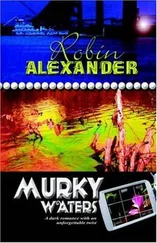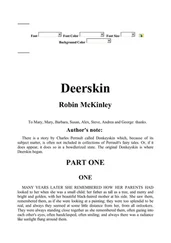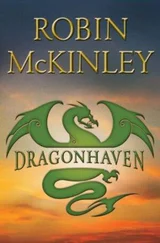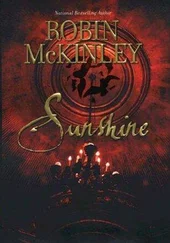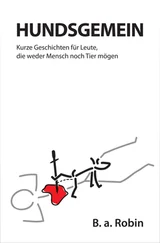Robin McKinley - Water
Здесь есть возможность читать онлайн «Robin McKinley - Water» весь текст электронной книги совершенно бесплатно (целиком полную версию без сокращений). В некоторых случаях можно слушать аудио, скачать через торрент в формате fb2 и присутствует краткое содержание. Год выпуска: 2002, ISBN: 2002, Издательство: Firebird, Жанр: Старинная литература, на английском языке. Описание произведения, (предисловие) а так же отзывы посетителей доступны на портале библиотеки ЛибКат.
- Название:Water
- Автор:
- Издательство:Firebird
- Жанр:
- Год:2002
- ISBN:9780142402443
- Рейтинг книги:4 / 5. Голосов: 1
-
Избранное:Добавить в избранное
- Отзывы:
-
Ваша оценка:
- 80
- 1
- 2
- 3
- 4
- 5
Water: краткое содержание, описание и аннотация
Предлагаем к чтению аннотацию, описание, краткое содержание или предисловие (зависит от того, что написал сам автор книги «Water»). Если вы не нашли необходимую информацию о книге — напишите в комментариях, мы постараемся отыскать её.
Water — читать онлайн бесплатно полную книгу (весь текст) целиком
Ниже представлен текст книги, разбитый по страницам. Система сохранения места последней прочитанной страницы, позволяет с удобством читать онлайн бесплатно книгу «Water», без необходимости каждый раз заново искать на чём Вы остановились. Поставьте закладку, и сможете в любой момент перейти на страницу, на которой закончили чтение.
Интервал:
Закладка:
But a little wind came up, and blew the wisps away, and the moon grew brighter. The implications of what had happened began to clarify themselves in Jenny’s unhappy mind as well, but the focus of her worry for the moment was her parents, who would not know what had become of her, and would be the more anxious about her disappearance after the scene with her mother. Already she was adjusting to the fact that she no longer had a betrothed; that she would not be wed in a fortnight’s time. She did not know that her sudden, desperate weariness was partly on account of that adjustment. She only thought that she had had a long journey, and that she was very unhappy, and that her parents would be worried about her. She still had not remembered the sea-people’s curse.
Her wolfhound set foot on the bridge first, and a tiny ripple of wave curled beneath it, like an echo, and subsided. She was walking at Flora’s shoulder, and it was the mare’s front hoofs that struck the bridge next, before her own feet; and she had just time to notice the same ripple of wave rise and begin to fall before she stepped on the bridge. But as soon as she stood on the bridge herself, it was no ripple but a wave that rose and fell upon the bridge, drenching her mare and her hound and herself. When the wave drained away, back into the harbour, there was a man standing in front of her. He gleamed strangely in the moonlight; there seemed to be something very odd about his skin. She saw him at once as human, even if the moonlight seemed to sparkle off him in flakes and facets, for he had the right number of limbs and the right order of features; and she assumed he was a man because his outline seemed to her more male than female, broader shoulders than hips, a muscular neck and square jaw beneath the wet hair that fell to his breast. But while she could not see that he wore any clothing, she could not see that he had any genitals either. And then as he held his hand up to bar her way, she saw, in the moonlight’s strange little iridescent ripples, that there were webs between his fingers.
“You may not pass,” he said, and his voice was deep, deeper than any human voice she had heard; almost she had difficulty understanding the words; it was as if the wind had spoken. Or like the roar of a big sea-shell held next to the ear. A cousin had brought her family a huge sea-shell once, as a curiosity, and it lay on the mantelpiece with other useless objects the family was fond of, the pipe-rack a nephew had made, though Jenny’s father had never smoked; the grotesquely hideous sampler that some great-great-great-aunt had made in her childhood which had mysteriously metamorphosed into a family heirloom. Her parents’ sitting-room rose up in her mind’s eye, and she shivered with loss and longing, for in this first great sorrow of her life, it seemed a thing more wonderful than a silver man who had formed himself from a wave.
“You may not pass,” he said again as she stood dumbly, but she thought that there was a reluctance to his words; perhaps it was only the odd echoing quality of his voice. “No land-person may set foot on this bridge and live, and I must drown you.”
She was still thinking of her parents’ sitting-room, and she remembered then the cousin telling the story of the sea-people’s curse when he had brought them the sea-shell. And she shivered again, for she found she was sorry to die; she realised she would not have died of love, and despite her weariness a flame of anger rose in her, that she should die for so stupid an error as loving a man who did not love her. For a moment her anger warmed her, and she stopped shivering.
The sea-man turned away from her, and she thought all these things in the crack of a second, as she saw that a wave as swift as the first that had drenched them was arching up over them now; and she knew that this one would fill her mouth and her lungs, and drown her. “No, wait!” she said, and put up her own hand.
The sea-man stopped, almost as if he were glad of the excuse, and turned back to her; and the wave curled back instead of forward, and fell again into the harbour, and a few drops only rebounded, and twinkled on the bridge. Her heart was beating quickly, and she knew she had no case to plead; she knew the curse as well as any child born of these two towns knew it; she had only forgotten it, because it had not seemed to her important. Her present position was her own fault. But perhaps she might spare those dear to her something.
“I beg you to let my mare and my bitch go free,” she said, her voice shaking, for it was all she could do not to fall on her knees and beg for her life, now that she understood that she was to die and that she wanted to live. Her fingers clutched Flora’s saddle-skirts to keep her on her feet, for the shivering had seized her triply hard as soon as she spoke. “Spare them and send them home as they are, dripping with sea-water, that at least my parents may know what has happened to me.”
The sea-man looked at her, and his eyes gleamed in the moonlight much as his skin did. “Tell me about your parents,” he said.
She took a long, rough, choking breath, for she knew that her self-control could not bear her much further. But gallantly she began to talk of her parents, not so much thinking that if he listened then she might live a few moments longer, but that she might have as her last thoughts some memories of her parents, who had truly loved her. She said that she was their only child, and she told him about the governesses, and the dogs and the ponies and the cats and the songbirds, and the quilt that she and her mother had made that lay on her bed, and she did not even notice that she wept again as she spoke. Then she went on to tell him about the man who had been her betrothed, and how much she had loved him, and how she had at last understood that he did not love her, and how she had gone to his farm to—talk to him, though she did not know what she would say, and she had there found him . . . with another girl. A pretty girl, and she touched her own ordinary face, and did not realise that it was wet with tears and not sea-water. She could think of no more to say, and fell silent.
Silence stayed a little while, broken only by the sound of the ripples of sea-water caressing the barnacled stones the bridge stood on. The sea-man had turned a little away from her again, looking down the harbour to the sea-mouth.
At last he turned back to her. “I am the king of the sea-people,” he said. “It was I whom the merchant cheated, and I who declared this curse on these towns and all their people, who would not give me justice only because I was of the sea instead of of the land. My wife begged me to be less harsh, but I was young and furious, and revelled in my own strength to get revenge. And I was angry for a long time, and for the first few years I enjoyed pulling down the docks and drowning land-people, in the memory of ours who had died, for I did not differentiate one land-person from another, just as they had not cared anything about me and mine but that I was not of them.
“But that was a long time ago, even for sea-people, and I have grown old, and I have had less and less joy in guarding this harbour and this bridge.
“In the meantime, my wife and I have had a son. And as I listen to you, I think what it would mean to me, if his horse and hound came home some day, gouged by the weapons of the land-people, so that I would know what had happened to him, and know that I would never see him any more. And I understand, now, why my wife would have made me hold back my wrath, and not say my curse.
“No one has set human foot on this bridge for many a long year, now. You are the first.
“And I cannot drown you. If this is a loss of honour for me, then so be it. I am no longer young, and I have learned about things other than honour, or perhaps I have learned something about honour that has less to do with pride. Mount up your mare and ride home, and let the weariness and sorrow of this sea-king go with you, and be driven into the dry ground by your horse’s hoofs.”
Читать дальшеИнтервал:
Закладка:
Похожие книги на «Water»
Представляем Вашему вниманию похожие книги на «Water» списком для выбора. Мы отобрали схожую по названию и смыслу литературу в надежде предоставить читателям больше вариантов отыскать новые, интересные, ещё непрочитанные произведения.
Обсуждение, отзывы о книге «Water» и просто собственные мнения читателей. Оставьте ваши комментарии, напишите, что Вы думаете о произведении, его смысле или главных героях. Укажите что конкретно понравилось, а что нет, и почему Вы так считаете.

